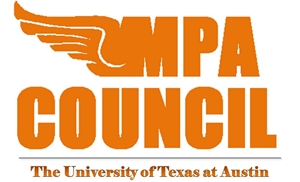 In late February, Program Director Jim Franklin and Department Chair Lillian Mills were able to have some members of the Institute of Chartered Accountants of England and Whales (ICAEW), one of the leading institutions publishing articles about the profession internationally, to come and speak about the future of global auditing with members of MPA Council.
In late February, Program Director Jim Franklin and Department Chair Lillian Mills were able to have some members of the Institute of Chartered Accountants of England and Whales (ICAEW), one of the leading institutions publishing articles about the profession internationally, to come and speak about the future of global auditing with members of MPA Council.
We were asked the question “What challenges do you think the auditing profession currently faces?” and “If you lived on a small island where all the companies did not have to have their financial statements audited because everyone trusted each other. If you wanted to open the island to foreign-based companies, what protections would you put in place?”
The resulting discussion I felt was fascinating, as it combined the knowledge I’ve developed in both my auditing and complexity theory categories. I feel these two questions are extremely related, and here’s why:
Let’s say we are on the small island described above. There is no need for audited financial statements because there is trust between the companies and shareholders. We face the decision of requiring audited financial statements in the face of foreign companies wanting to sell shares on our island because we do not have the same trust in these companies. Auditors would become in demand because of a lack of trust between company management and investors.
If shareholders feel they have been presented fraudulent financial statements, they will blame the auditors for not catching it. Even though it was the company that committed the fraud, the highly-trained auditors did everything they were supposed to do, a disproportional amount of blame falls upon the auditors.
This blame falls on the auditors because most people don’t fully understand the role of the auditors and the work they do. They just expect them to catch all and any fraud. This is what we discuss in auditing class as the expectations gap. Because people don’t understand the training and qualifications we have, and the limited nature of our job, we can only do so much to prevent fraud. Companies preparing the financial statements are the ones ultimately responsible.
Also, auditors are held accountable for the effectiveness of accounting standards. The problem with this is that the world is coming more and more complex, and companies are quickly adapting their operations in order to survive in the complex world. Frequently, we can’t keep up in developing accounting standards to reflect these new and innovative ways of doing business. Technically, a company’s financial statements could be following GAAP, but the core economics of the transactions are misrepresented.
Because of this expectation gap and lack of trust that is continually strengthened by corporate fraud, a a decent amount of people are mistrusting auditors for “not doing our job.”
The answer seems to be to close the expectations gap and to increase people’s trust in our services. The million dollar question, though, is how in the world can we do that?





